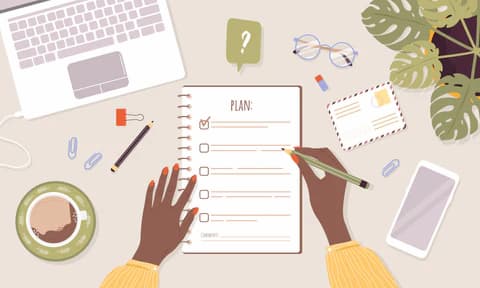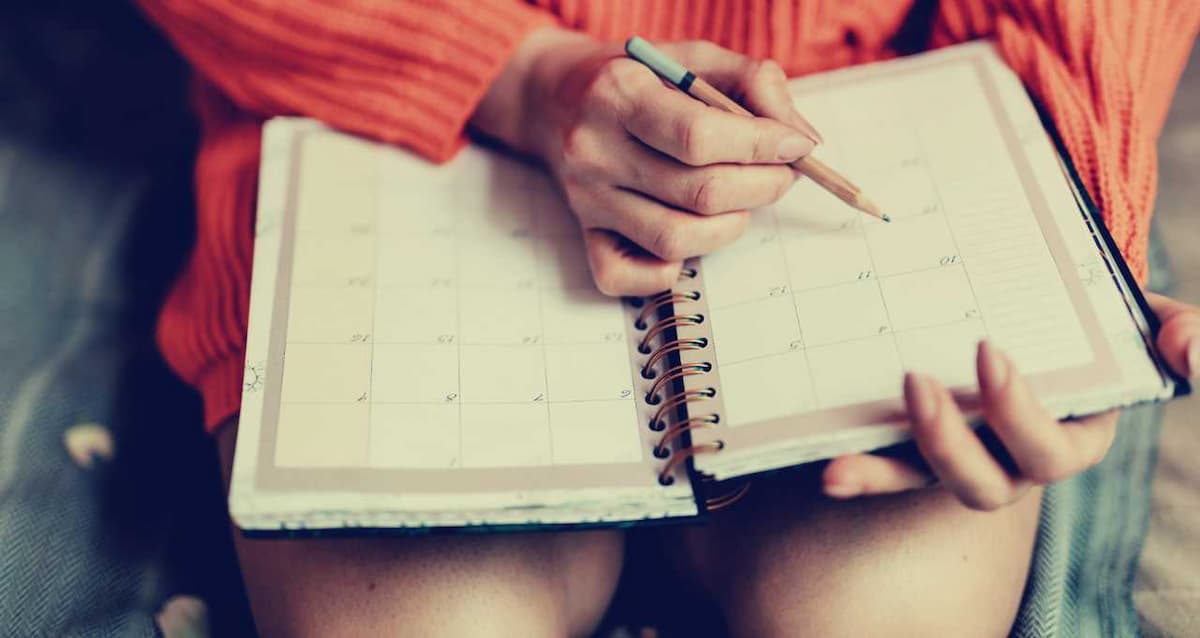You close the door to the practice room behind you. You are alone with your instrument. You take it out of the case, lift it up and… now what? Should I start with some scales? What was that bit that I said I should practice the other day? Oh, and there’s that other bit I’d forgotten about, should I do that now or later? Wow, I’ve got a lot of music to learn…
Sound familiar? Don’t worry, we’ve all been there: we get set up to practice only to be left wondering what we should actually do. Perhaps it feels like you have too much music to learn. Perhaps it feels like you don’t have enough time to learn it. Perhaps you just can’t be bothered today.

© prodigies.com
We want music-making (yes, even practice) to be fun, spontaneous, and engaging – but how do we balance that with the sometimes very real needs and pressures we face as musicians? Some musicians make meticulous practice plans, down to the individual scales they warm up with and minutes spent on each passage. Others walk in with a general idea and trust that it will all come out in the wash. Where should we sit on this sliding scale? How much do we leave to chance in the practice room, if anything at all?
It’s no secret that when faced with a big task, breaking it down into smaller chunks aids motivation and makes the challenge seem more manageable. This is no different for musicians: learning a new piece or prepping for an audition can seem overwhelming, but making a practice plan can give a sense of structure and clear goals to aim towards.
Planning our practice ensures there’s enough time to get through everything; it can help us to feel less overwhelmed when faced with lots of orchestral excerpts or tricky notes to learn; it can be a great motivator to keep us on track on those days where we just can’t face practising.
Of course, the scale can tip too far: we can end up micromanaging our time to such an extent that we lose sight of the bigger picture. Having a schedule is useful, but it’s important to build in opportunities to take stock and adapt if necessary.
What those opportunities look like will be different for every musician: the overall look and feel of a practice calendar is as individual as the person doing the practising.
How about a colourful practice journal like this one:
The scale of the plan is something that needs to be taken into account. How long do you have before your performance? A week? Two weeks? A month? A year?
I find the best way to get results from a practice plan is to start big, then gradually zoom in. Don’t make the mistake of jumping straight into a tangle of note-learning, as hard as it may be to resist that initial excitement with a new piece.
Ask yourself: when am I actually performing this piece, if at all? Is it a few months away, is the gig next week, or am I just wanting to get something under my fingers for my lesson? Knowing what exactly you’re practising for, and when, can help you establish your larger-scale timeline, and will help with setting your priorities and staying on track.
Once you know how much time you have to practise something, it can be useful to work backwards from the performance date and set milestones. For example, you could say to yourself, “By three weeks before the performance I will be completely ready,” and then trace back from that point in order to create an overarching practice plan. A long-term plan for learning a piece for a solo recital might look something like this:
3 weeks before: be completely ready
4 weeks before: tidy up any final technical issues
5 weeks before: finish note learning, focus mainly on expression and interpretation
6 weeks before: learn the bulk of the notes, keep studying the score for overall structure
7 weeks before: start learning the particularly tricky technical passages, listen to recordings of the piece and get a sense of the overall structure
Notice that there aren’t any specifics here: the long-term plan is meant to serve as a general yardstick against which you can measure your general progress. The details come in the daily and weekly planning.
Here’s another example of practice diary using the bullet journal system
And why be ready 3 weeks before, I hear you ask? Well, it’s always good to build in some contingency just in case you get a bit behind with your practice – and having a few weeks of complete familiarity with the music will help you feel extra comfortable by the time you get to the actual performance.
Once you’ve got your overall framework, you can then fill in the gaps, working week by week to know exactly what you want (and need) to get done. Don’t be afraid to change your weekly plans as time progresses. You might find that you learn a tricky passage much faster than anticipated, or it might be that one bit is taking a tad longer than you thought. Stay curious and adapt as necessary.
In the example above, the 3-week ‘ready period’ could have some time factored in for technical passages that haven’t quite been sorted yet. Or it could allow for larger scale work – reading something like “Run through the whole piece, record myself, listen back and take notes” wouldn’t be out of place in a practice diary for this stage of the preparation.

© piano-couture.com
Remember, practice takes many forms: obviously we have to spend time learning notes and playing studies and scales, but performing to friends, recording yourself, and listening to existing recordings by other musicians all count as practice!
How much you plan and anticipate is down to you. It’s easy to become bogged down in the quagmire of over-planning, and there will definitely be days where motivation is waning and it’s hard to stick to the plan. But it’s exactly for those days that the plan exists.
There will be periods where everything goes smoothly, and other times when your brain can’t seem to absorb a single piece of information. Rest assured, this happens to all of us. We can’t always predict how we’ll be feeling on a certain day, but having a framework in place can take some of the burden off.
Last but not least: don’t forget the fun of it. Making a plan can seem a bit straightjacketing, like it has the potential to suck out the fun and spontaneity that can happen while practising. Obviously people respond differently to varying levels of planning and preparation, but speaking personally, having a structure in place actually allows me to be more creative.
Imposing a gentle but firm framework takes the burden off my day-to-day decisions of what to actually practise, and it means I can hone in and be fully in the moment without worrying that I’ll run out of time to learn everything. This is particularly helpful in situations like auditions where there are dozens of short excerpts to internalise: making a plan takes that fear away.
Whether you’re a person who goes in with an itemised list of your daily objectives, or someone who prefers to just see how things go, everyone has their own rhythm. Talk to friends and colleagues – collaborate, share ideas, trade tips and find inspiration to take into your own work. Experiment. Make mistakes. Discover what works for you. You might even end up… [whispers] enjoying practice…?
For more of the best in classical music, sign up to our E-Newsletter
